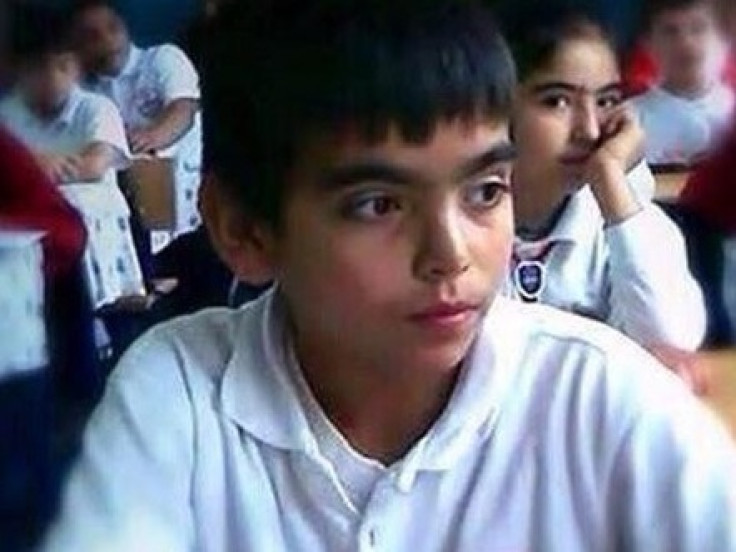Berkin Elvan: A Dead Child and His Dying Language

Teenager Berkin Elvan died last week from a head injury sustained during protests against the Turkish government last summer.
Elvan, who was 14 years old when he died, was on his way to buy bread for his family when he was hit by a teargas cartridge fired by police during anti-government protests.
The teenager, an Alevi-Kurd who lived in Istanbul, had been in a coma for 269 days before he died.
Elvan spoke Zazaki (or Kirmanjki), which is one of the dialects of the Kurdish language currently under threat of disappearing altogether, according to the UNESCO's Atlas of the World's Languages in Danger.
Zazaki, spoken by about two million people in Dersim, Erzincan, Elazıg and Bingöl provinces in Turkey's Kurdish regions, is one of the vulnerable languages in Turkey where there are 18 languages in total in danger of extinction, Unesco reported.
Other vulnerable languages include Abkhaz, Adyge, Kabard-Cherkes, Abaza, Homshetsma, Laz, Pontic Greek, Romani, Suret and Western Armenian. All of these fall into a category of "definitely endangered" languages.
Elvan's family is originally from the Kurdish province of Dersim, which witnessed one of the most brutal mass killings of the 20<sup>th century. They were exposed to the Dersim Genocide, in which thousands of Alevi Kurds were massacred and many others were internally displaced in 1937 and 1938.
Dutch Scholar Martin van Bruinessen, an expert of the Kurdish history, refers to the events of Dersim in 1937 – 1938 as ethnocide, which aimed to destroy Kurdish ethnic identity.
Statements from witnesesses say that people from Dersim were killed en masse, by machine gun and artillery fire and in many cases, by poison gas bombs and bayonets during that period.
The corpses of some of the victims were doused with kerosene and set alight. Even the people who were hiding in caves were annihilated and women and children of some tribes were burnt alive.
Poisonous gas air bombardments were carried out alongside the torture of residents of the province.
Thousands of women and girls threw themselves into the Munzur River in order to avoid the rape and torture at the hands of Turkish soldiers, witnesses and former soldiers stated.
Zazaki, spoken by about 2 million people in Dersim, Tunceli, Erzincan, Elazıg and Bingöl provinces in Turkey's Kurdish regions, is one of the vulnerable languages in Turkey where there are 18 languages in total in danger of extinction
The thing is, the Dersim Genocide of 1937-1938 is still going on today, but in a different form.
Banning a language or preventing it from developing is linguistic genocide.
And this is what many languages spoken in Anatolia and Mesopotamia have been subjected to for years.
According to the Cambridge Handbook of Endangered Languages, there are four main types of causes of language endangerment, two of which are war and genocide.
Greek and Armenian people were subjected to genocidal violence by the Committee of Union and Progress (CUP), an ultra- nationalist group of Young Turks, during the late period of the Ottoman Empire. This fact has also been affirmed by the International Association of Genocide Scholars.
Greeks were also exposed to forcible resettlements, population exchanges and pogroms as a continuation of the Turkification policies of the Turkish state, which caused Pontian Greek to become an endangered language and made Cappadocian Greek extinct in Turkey.
When the language prohibitions, genocides and threats of genocides in Turkey are taken into consideration, we can conclude that all native people living in Turkey have been exposed to this type of marginalization and hegemony of the Turkish state.
The linguistic tragedies experienced in Turkey were and still are experienced in many other countries to some extent, but none of those states have prevailed in subjecting their people to those tragedies for such a long period of time.
Many linguists agree that communities that lose their language may also lose political legitimacy as a community with collective rights.
As this was what the state of Turkey aimed at from the very beginning – for all non-Turkish ethnic communities living inside its boundaries – language endangerments or language genocides have been very common in Turkey.
Turkey's official ideology, which could be summed up with the "one language, one flag, one nation, one state" slogan frequently shouted by Turkish state officials, is sadly turning Turkey into a graveyard of native languages and cultures.
© Copyright IBTimes 2024. All rights reserved.





